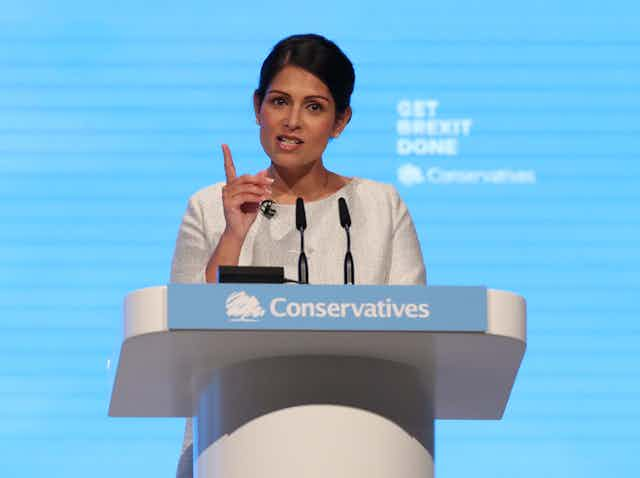It’s election time again. That means hustings, television debates, national spending promises and the all too familiar image of a “tough” government minister announcing a “crackdown” on Gypsies and Travellers. Step up Home Secretary Priti Patel who has promised to change the rules on trespass, a step that would criminalise any encampment of more than two vehicles, potentially resulting in Travellers being arrested and their property seized. The government has opened a consultation on the plans which would strengthen police powers to tackle unauthorised encampments.
Gypsies and Travellers have lived in the UK for centuries, with early records dating back to the early 1500s. They are citizens with a traditional nomadic habit, travelling up and down the country for work, following historic routes from previous generations. Many traditional stopping places are no longer available, as green spaces on outskirts of towns and villages have been built on, or fenced off.
This, combined with a lack of sufficient new sites built, has resulted in more Gypsy and Traveller unauthorised encampments in recent years – reaching a peak number of 1,524 caravans in England, in the official government count of July 2017. While the most recent July 2019 figures have not yet been released, reports from councils applying for injunctions say that numbers are on the rise.
Accommodation for Gypsies and Travellers is clearly an issue. But in the run up to a general election this issue becomes politically weaponised. Some topics just push the buttons of news editors and their readers. Researchers have found a series of “news values” which explain why some stories are read more than others and “Gypsies and Travellers” tick a great number of these values. I found this in my research back in 2004, which examined the negative impact of political and news debate on the lives of Gypsies and Travellers and for community cohesion in general.

Electioneering
There are two key long-held traditions in election campaigns. First, is a round of visits to hospitals, sometimes with the promise of more funding for the National Health Service. Stunts like this have been criticised by senior figures in the NHS who say over-promising for health services, as part of election pledges, is irresponsible. The second tradition is the now predictable election campaign announcements of plans to “tackle” unauthorised Traveller encampments.
One of the most hostile political campaigns against Gypsies and Travellers was run by Michael Howard in 2005, when he vowed to clamp down on unauthorised encampments. This was then taken up by The Sun newspaper in their campaign to “stamp on the camps”. This sort of signalling is sometimes referred to as “dog whistle” politics – using messaging which might not land with everyone, but which speaks to a significant number of people who want to see their politicians “clamping down” and “taking action” against people “not like us”.
In another research project I explored the role that Gypsies and Travellers played in the Brexit referendum campaign. The study involved the analysis of political and media discourse in the run up to the referendum. Again, Gypsies and Travellers were used as a signal to readers and voters that this “other” way of life would not be tolerated. This is now a key part of many political campaigns, favoured particularly by the Conservatives. The messaging is so overt, it is less “dog whistle” (silent to some ears, but loud and clear to others) and more like a political fog-horn.
Negotiation not criminalisation
The problem is that Gypsies and Travellers can’t win. If they settle down in one place, they are no longer seen as “real” Gypsies because they don’t travel all the time. If they do travel, there are very few places to stop because there are nowhere near enough permanent or transit sites. So, when they pull up on the side of a road or a piece of common land, they are “unauthorised” campers – or if Patel has her way, they will be criminals.
There are already stringent measures in place that have limited the provision of Gypsy and Traveller sites. For example, a planning policy change in 2015 meant that “nomadism” was a singular defining feature – that there was no such thing as a “retired” Gypsy (someone who no longer travelled for work because they were too old or too ill). There are also increasing numbers of councils using injunction powers to prevent unauthorised encampments on top of existing powers already in the Criminal Justice and Public Order Act (1994) – the law which Patel seeks to toughen up.
There is no need for further powers. But there is a need for more negotiated approaches to unauthorised encampments, particularly in towns and cities where there are no sites and where traditional stopping places, used by past generations, have been built on or fenced off. Patel’s “crackdown” is less a serious policy aim and more a starting whistle, blown as a signal to a substantial segment of her party’s core voters.


